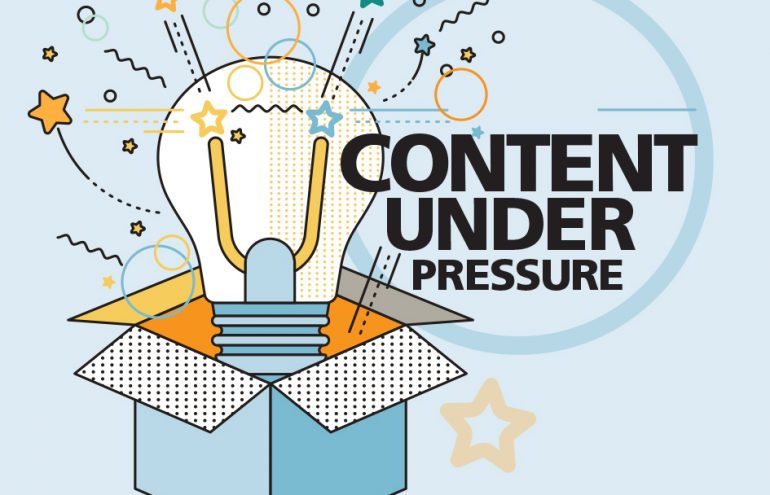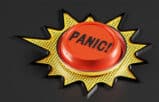Maybe this is the year you’ve committed to writing a blog. Perhaps you want to improve your client alerts or have just been given a monthly column. Talk about producing content under pressure! You’ve mastered the art of writing when you can write without being inspired. It can be done. After 30 years as a professional writer, here’s what I’ve learned.
Write in the same place. Some professional writers don’t need to, but most writers sit at the same desk, or in the same chair, each time they sit down to write. I seem to only be able to write when my posture is terrible. Go figure.
Minimize distractions. Turn off your phone and text and email alerts. Visual distractions are death to writers. One successful writer I know works in a closet. He’s got six books out, so he must be on to something.
Research, then write. Unless you’ve been writing about or thinking about your topic extensively, do your research and then let it sit. Go for a run, take a shower. Let the information settle into your head and give your subconscious time to organize it. Only then should you fire up the laptop.
Form rituals and routines. When you write, establish cues that tell your body and mind you are in writing mode. For me, it’s having a beverage on my left (coffee by day, wine at night), taking off my shoes and putting my feet up (hence my poor posture). Whether you write at home or at work, establish a pre-writing routine. Fill your water bottle in the office kitchen or walk around the block. At home, you can take the dog out or finish cleaning the kitchen. Over time, these cues tell your mind it’s time to write.
Finish in one sitting. Unless you are writing a book, commit to finishing the piece in one sitting. Book the appropriate amount of time to complete the work. Resist getting up from your computer at all costs.
Establish editing habits. Editing is vital. Some writers move to a new location when they edit to provide some physical and mental separation from writing. I often print out a piece and edit in hard copy. Some writers even copy and paste their work into a separate document in a different font. Use anything that helps distance you from your work and evaluate it more objectively. (Related: “Writing Lean in 2017.”)
Stick to deadlines. Once I procrastinate, the delays never stop. Then I am wracked with guilt and self-doubt. Adhere to deadlines at all costs.
Write for your reader. This may seem obvious, but many beginning writers write for themselves. Keep your reader top of mind at all times. Write simply, even if you are smart enough to keep track of four clauses at a time. Provide the context they need, even if it seems obvious to you.
Stop trying to sound smart. Big or obscure words don’t make you look smart. In fact, an article in Applied Cognitive Psychology found the opposite is true. Long sentences can make it appear that you don’t know the topic, and so are writing around and around it to obfuscate the fact. Similarly, no one likes to be labeled as too clever by half. It’s the quickest way to turn off a reader.
Try incorporating some of these rules and habits into your writing routine. And please use the comments section to add your own. Happy writing!
Illustration ©iStockPhoto.com
Sign Up for ‘One Really Good Idea Every Day’
Get Attorney at Work’s daily dispatch every day in your inbox, just sign up here.

















